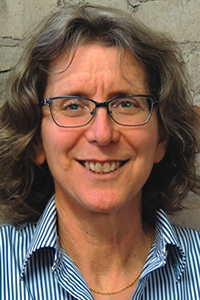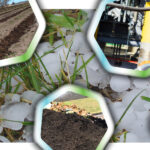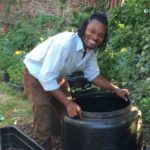
Nora Goldstein
BioCycle October 2014
Policy changes in the organics recycling industry typically happen at glacial speed, so the watershed events of the past few weeks have been fun. First, on September 28, California Governor Jerry Brown signed two landmark pieces of legislation — AB 1826 and AB 1594 — that will lead to significant increases in the amount of organic wastes available for composting and anaerobic digestion. Second, the State of Massachusetts’ ban on landfill and combustion of commercial organic waste became effective as of October 1, 2014.
Granted, these policies were years in the making. But the momentum of the California Assembly bills becoming law and the commercial organics ban in Massachusetts going into effect only three days apart is exhilarating to our industry. And these policies in both states— along with those in effect in Vermont and Connecticut as well as several major cities — serve as models for the rest of the country.
The excitement of the policy landmarks was peppered with a significant dose of reality for composters, digester operators and organic waste generators in the Mid-Atlantic region, where BioCycle is based. Toward the end of September, food waste generators and/or their haulers were notified by the largest composting facility in the region (Wilmington Organic Recycling Center (WORC) owned and operated by Peninsula Compost Company in Wilmington, Delaware) that it was no longer taking in new feedstocks. The facility, permitted to receive up to 600 tons/day of source separated organics, is awaiting a decision by the Delaware Department of Natural Resources & Environmental Control (DNREC) as to the fate of its operating permit, which is up for renewal. WORC has been cited by DNREC for odor and other environmental violations. Peninsula Compost Company’s decision has food waste generators and their haulers throughout the Mid-Atlantic region, including the Baltimore-Washington metropolitan area, scrambling for new processing outlets.
Yesterday, I was interviewed by a reporter for a Baltimore radio station who was curious why composting facilities in the region were rejecting loads that had been going to WORC. Among the talking points I discussed were:
1. WORC was permitted to take source separated food waste and yard trimmings. Source separated means that compostable feedstocks are being diverted and noncompostables go in recycling or trash containers.
2. The reality is that much of the “source separated” loads delivered to WORC were highly contaminated with plastic bags and other noncompostable items.
3. The composting facilities with capacity mentioned by the radio reporter take truly source separated organics and have a very low tolerance for contamination.
4. Source separation is not rocket science. Many food waste generators are doing it quite successfully — in large part because the contamination is not tolerated, and employees are trained and retrained until the SSO is consistently acceptable (and then retrained again).
The bottom line, especially as more and more organics are going to be diverted due to the policies that exhilarate us, is that processing capacity for clean source separated food waste is available at composting facilities and anaerobic digesters, and more is on the way.









